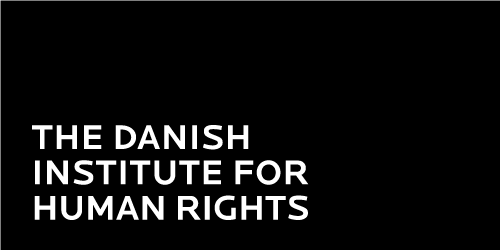Location
The Danish Institute for Human Rights is an independent state-funded institution. Our mandate is to promote and protect human rights and equal treatment in Denmark and abroad.
We are Denmark’s national human rights institution. We are also a national equality body in relation to race and ethnicity and gender. Furthermore, we have a special role in the disability area where we promote and monitor the implementation of the UN Convention on the rights of persons with disabilities.
In Denmark, we advise the government, the parliament, ministries and public authorities on human rights, among other things, when new legislation is suggested.
We produce analyses and research on human rights, for instance about children with imprisoned parents, legislation on terrorism, the rights of stateless human beings and equal pay.
We carry out specific projects to promote equal treatment and advise those who may have been discriminated against.
We map out the biggest human rights challenges in Denmark as well as the yearly improvements in the area. For more information, see our annual Status Report and The Annual Report to the Danish Parliament.
Internationally, we work with states, independent organizations and the corporate sector, enabling them to strengthen human rights.
We assist in building well-functioning legal systems abroad and to ensure the influence of civil society.
We aid private companies in assessing the impact of their work on human rights.
We educate police officers, school teachers, ombudsmen, and judges on human rights.
Members:
Resources
Displaying 1 - 5 of 6Briefing Note: A Collaborative Approach to Human Rights Impact Assessments
This briefing note, co-authored with the Danish Institute for Human Rights and the Sciences Po Law School Clinic, outlines a new approach to conducting human rights impact assessments (HRIAs) of business operations or projects, which brings together project-affected people, the company, and other stakeholders to jointly design and implement an assessment.
A Collaborative Approach to Human Rights Impact Assessments
This paper provides guidance on how to conduct collaborative and participatory risk assessments, paying attention to the human rights of project-affected people. It was written for stakeholders who seek more effective strategies for investigating the human rights impacts of business projects or operations, and who wish to make their human rights impact assessments more inclusive and responsive, or who seek to encourage greater buy-in from other stakeholders.
Indigenous Navigator
The Indigenous Navigator is a framework and set of tools for and by indigenous peoples to systematically monitor the level of recognition and implementation of their rights. By using the Indigenous Navigator, indigenous organisations and communities, duty bearers, NGOs and journalists can access free tools and resources based on community-generated data.
Myanmar Oil & Gas Sector Wide Impact Assessment - Part 4. Section 1. Stakeholder Engagement & Grievance Mechanisms
ABSTRACTED FROM THE EXECUTIVE SUMMARY: Part 4: During the transition, businesses, government and development partners need to take steps to fill the existing gaps in Myanmar’s legislative framework on the protection of the environment, society and human rights. The Government has an immediate and important opportunity in the new production sharing contracts to fill these gaps through contractual requirements to meet the International Finance Corporation Performance Standards and World Bank Group Environmental, Health and Safety Guidelines.
No Clear Grounds
The global finance, energy and food crises are fuelling a global rush for land in developing countries. In their search for land, political leaders and investors look to Africa as a potential food supplier for the rest of the world. However, the current trend of land liberalisation rarely offers a solution to sustainable food production and poverty reduction among smallhold farmers in rural areas, as shown by this case study.





